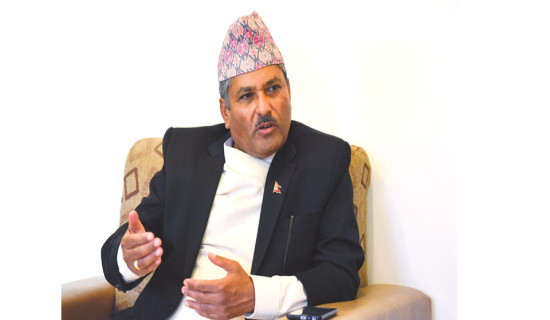- Saturday, 27 April 2024
Reform Civil Service
Bureaucracy is the key administrative machinery of any nation. Bureaucrats are non-elected governing officials and an administrative policy-making group. They are so inevitable that no government can deliver public services in an effective manner without having professional, responsible and committed civil servants. Competent and self-motivated bureaucrats alone could be a change maker. They are responsible for enforcing laws and executing policies formulated by the government. They also provide politicians, especially ministers, with ideas and facts in regard to handling the state of affairs. The bureaucrats are supposed to be politically neutral to avoid ideological partiality while serving the nation and the people. With their practical experiences and efficacies, they can be instrumental in leading the nation to the path of progress and prosperity. Since they know well what sort of policies and laws the nation requires to move ahead, they contribute towards formulating necessary laws and policies as well.
Considered as permanent government, a powerful and accountable bureaucracy carries out its vital responsibilities of maintaining good governance and dealing with a myriad of challenges and problems facing the nation. Even amid political volatility, it provides stability to the system of governance. The civil service offers a sense of consistency and continuity even as governments, ministers and other political appointees come and go frequently. Civil servants are also regarded as instruments of social change and economic development. The common people may not feel any positive change in their lives when policies and programmes are not implemented successfully. It is civil servants whose main responsibility is to materialise all the plans and programmes in order to bring out desired outcomes. They also perform many development activities such as introduction of innovative technology in educational, agricultural, industrial, banking sectors and the like to bridge the digital divide.
Despite numerous challenges and obstacles, the bureaucracy in Nepal maintains law and order, delivers services and carries out development projects. However, there is no comprehensive Federal Civil Service Act in place even after the nation has adopted the federal system of governance with the promulgation of the Constitution of Nepal, 2015. About four years back, the then government had tabled the Federal Civil Service Bill, 2075 in the House of Representatives. After holding a series of discussions, the State Management Committee of the federal parliament had finalised the Bill to be endorsed. But the Bill failed to move ahead owing to a lack of political consensus. After having withdrawn the Bill from the parliament in October last year, the government is now considering tabling a new Bill in parliament. A broader Federal Civil Service Act is essential to manage the federal civil service successfully.
Many civil servants have been calling upon the government to introduce the Federal Civil Service Act immediately. In this connection, Prime Minister Sher Bahadur Deuba has said that the government is serious about tabling an improved Federal Civil Service Bill in the parliament as soon as possible. Addressing a function organised to mark the foundation day of Nepal Civil Service Employees Union in the capital on Sunday, Deuba assured that the government would incorporate suggestions received from experts and civil servants in the proposed bill. Referring to the active involvement of civil servants in political activities, he asked them to remain politically detached and perform their duties efficiently. He, however, lauded the government employees for carrying out rescue and rehabilitation works in the times of COVID-19, recent dengue outbreak, and natural disasters like floods and landslides.
















